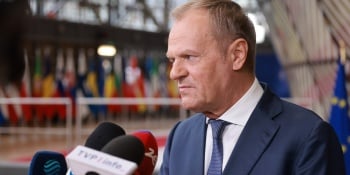
Through the proposed amendments to the European Union treaties, the unelected European Commission aims to "build a superstate that will be highly centralized in the economic, military, political, and social areas". If this plan succeeds, it will create a strong center of power centered on Germany. The latter will be able to impose important policies against the will of a majority of the Member States, disregarding their security and economic interests as well as their social, legal, national, and cultural identity.
It will also enable the introduction of further changes to the treaties through majority voting instead of the current unanimity rule. It will thus make it possible to further restrict the Member States’ sovereignty against their will, realizing the vision of an Italian communist, Altiero Spinelli, as outlined in the 1940s in his Ventotene Manifesto (which is openly invoked in the preamble of the draft amendments to the EU treaties).
INFOGRAPHIC ABOUT THE CHANGES TO THE TREATIES (IN ENGLISH) - LINK
INFOGRAPHIC ABOUT THE CHANGES TO THE TREATIES (IN FRENCH) - LINK
Background
On December 18, 2023, the European Parliament adopted 267 substantial amendments to the EU treaties providing for the takeover by Brussels of competences in ten crucial policy areas: (1) climate, (2) health, (3) cross-border infrastructure, (4) border protection (including immigration), (5) foreign policy, (6) security and defense policy, (7) industrial and economic policy, (8) education, (9) monetary policy, and (10) family law. See the resolution below:
https://www.europarl.europa.eu/doceo/document/TA-9-2023-0427_EN.html#title1
In December, all these amendments were accepted by the Council of the European Union.
The adoption process is expected to take around two years. It will have to go through the approval of the European Council (the heads of states and governments), the Convention (representatives of the national parliaments, the European Commission, and the heads of states and governments), and then be ratified by all EU Member States.
All available means of pressure will be brought to bear in order to influence hesitant governments.
Some of the most important provisions are summarized below.
External Security, Defense, & Military Spending (Chapter 6 of the Ordo Iuris report) will become a shared competency (Amendment 75) under the “Defense Union comprising military units and a permanent rapid deployment capability, under the Union’s operational command” (A 52). This means the transformation of the present national armed forces into a Union armed force where a European Defense Agency would be given the right to “procure armaments on behalf of the Union and its Member States.” Even those countries with the highest rate of defense spending – Poland spends 3.1% of its GDP on its military, for example – will have no control over their choice of suppliers.
Member States will also lose control over their own armed forces given that the “decisions relating to the common security and defense policy shall be adopted by the Council acting by a qualified majority” (A 53). Additionally, military missions will be launched based on a decision taken by a qualified majority (A 54) instead of via the current principle of unanimity.
The establishment of the Defense Union should be read as a challenge to NATO structures and, in the longer term, as an attempt by Europe to abandon military cooperation with the United States altogether. It would represent an intermediate stage in the realization of the German Eurasian concept of an EU involving the Russian Federation’s participation, and open to a balanced policy between the US and China.
Foreign affairs (Ch 5). The EU plans to introduce fundamental changes to the Common Foreign and Security Policy (CFSP) by rendering “foreign affairs” an area of shared power (A 73). In the case of the “harmonization” of EU foreign policy, Member States would be bound by instructions from Brussels. Their diplomatic missions can be replaced by the EU External Action Service. The High Representative for Foreign Policy will become a European foreign affairs minister under the name of Union Secretary for Foreign Affairs and Security Policy.
Border protection (Ch 4). “External border policy” will be included in the category of shared powers (A 98), which will enable the EU to regulate the Member States’ border protection policies, personnel, and procedures in order to carry out immigration services. This may affect those border walls that have been built in Hungary and Poland, as well as miscellaneous other security measures plus the ability to regulate the flow of immigrants.
Industry and Economy (Ch 7). The area of “industry” will also become a competency shared between the EU and the Member States (A 75). This will accelerate the processes of EU industrial integration while limiting the Member States’ influence on industrial policy and economic development. The proposed treaty changes likewise affect such strategic areas as the mining, energy, and arms industries. They will additionally allow the European Commission to intervene further in the Member States’ economies.
Monetary Policy (Ch 9). The draft inscribes into the treaty the principle that “the currency of the Union is the euro.” This change will force the implementation of the euro as the sole currency in all Member States. Until now, Germany and the Netherlands have been the main beneficiaries of the common currency, with all the other Eurozone countries, notably France and Italy, losing out financially and economically due to their participation in it.
Climate Policy (Ch 1). “Climate protection” will become required in all policies (A 83), and the EU will have exclusive rights to sign international treaties pertaining to “climate change” (A 69). It will gain sole competence over environmental issues, with new powers to prosecute “environmental crimes.” Considering the radical green policies pursued by the EU, it is to be expected that green technologies will be forced through without consideration for their costs and effectiveness, thus posing a threat to the bloc’s energy security.
Cross-border infrastructure (Ch 3). The cross-border infrastructure will become a shared competency in the field of transportation (A 71) and include all modes of transportation: road, rail, sea, air, and inland waterways. This is likely to lead to the cancellation of projects such as the Via Carpatia highway that is to connect the countries of the Three Seas region, as well as the Central Communications Port (CPK) airport project in Poland, and will as well carry significant logistical, economic, and military implications concerning liquid gas terminals that are necessary to ensure energy independence from Nord Stream, etc.
Education and Upbringing (Ch 8). Education will also become a shared competency. This implies a far-reaching restriction on the Member States’ autonomy in determining their educational systems and programs, enabling the introduction of uniform and mandatory educational standards, including permissive sex education for all. This is to be understood as a step towards the abolition of sovereign nation-states and the creation of a common European state, possessing a common European identity that will replace national identities.
Health (Ch 2). Health policies will furthermore become a shared competency of the EU and the Member States. This may enable the EU to adopt a single policy for introducing pandemic restrictions on civil liberties (e.g., lockdowns, mandatory vaccinations, etc.) as well as access to abortion. The proposed amendments will introduce the concept of “sexual and reproductive health and rights,” which have hitherto been unrecognized according to treaty standards. This mainly concerns abortion and contraception, but also drastic surgical and hormonal interventions as part of so-called “transitions,” alongside a form of sexual education promoting promiscuity.
Family Law (Ch 10). Amendments 103 and 104 will remove the requirement for unanimity in the EU Council on questions of family law. A qualified majority will therefore be able to decide on the adoption of laws that contradict the cultural, constitutional, and moral identities of a significant number of the Member States.

Civil liberties
Over the past 70 years, the European Union has evolved from a simple economic cooperation project into a powerful supranational entity with its own currency, court, and ability to impose financial sanctions on Member States. What began as a vision of free trade and peaceful coexistence has transformed into an institution influencing nearly all aspects of governance in Europe, centralizing power at the expense of national sovereignty.

Civil liberties
The following updates and adds to an earlier list of violations that was published in October 2024.

Civil liberties
• The Polish Sejm is working on a bill to criminalize so-called “hate speech”.

Civil liberties
Following the Polish parliamentary elections of October 15, 2023, a new Council of Ministers appointed by an alliance consisting of the center-left Civic Coalition, the center-liberal Poland 2050, the agrarian Polish People’s Party, and the Left was appointed on December 13, 2023, following eight years of rule by the more conservative United Right coalition led by Law and Justice (PiS).